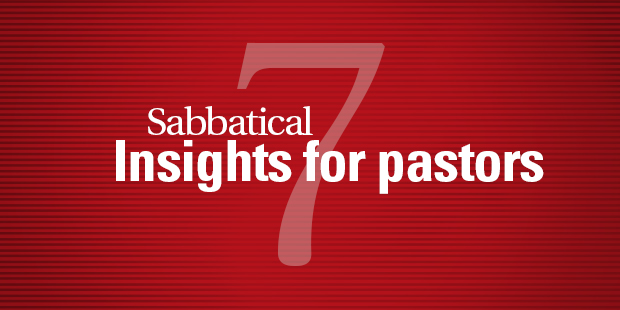
The Church as Creature of the Word, Part 3
How do we practically get consumer driven churches to shift their “culture” to experience transformation and to become a Creature of the Word?
Part 3 of this series, The Church as Creature of the Word, continues with a discussion among authors Eric Geiger, Matt Chandler, and Josh Patterson.
Josh: Truth be told, our church has a lot of consumers too. The irony is that the more we hit the consumeristic culture, the more people come to consume that message. This is a battle in the culture of our society, not just our church. The great thing is, God has brought transformation. People say, “I once was this, but now I’m moving towards this.” You always want people to walk away with the aura of Christ, not the personality of the person witnessing.
Matt: If you’re the lead pastor, what you’ve got to do is point to things that are of first importance. I want to bring as much attention to Jesus Christ as I can – not to me, not to us, not to our church, etc. There’s a certain baseline for comfort here. I want us to be lean as we seek to plant other churches and point people outside of us.
If you’re on staff or a lay person at a consumer driven church, know this: almost everyone has an opinion on what the pastor ought to be doing. Adding your voice probably won’t get you anywhere. People I listen to are people who I know love me and are in the trenches with me. They’re not in the stands judging how I’m fighting, but they’re fighting along with me. Be your pastor’s biggest fan. Serve him and walk alongside him and then float him stuff. There’s a way to respect and honor the position while being honest about what you hope God will accomplish through him in that place.
For guys considering joining church staffs, you’re not hired to set culture or theological positions. Deflect as much as you can and point to Jesus always about everything.
How do you bring about change when a practice is no longer effective, but for some, is a matter of theology?
Eric: Theology, philosophy, and practice matter, but that doesn’t mean you’ll have the same culture in every church. Think in terms of a house. The foundation is theology. The philosophy is the walls of the church. It needs to be in harmony with the theology, but there is some freedom in the philosophy of the church. “What are we going to value most?” You can move the walls in your house, but it’s hard and takes time. The practice is the finishing and furniture. You can move it around. You’ve got freedom.
What are we changing? Theology? Philosophy or practice? We need to know the difference. For philosophy, we need to know that it’s challenging. We’re moving the walls. To do it in a healthy way, you have to tie the philosophical change to the theology. We’re making a shift philosophically because of this, because of what we believe.
You can dissect the culture by looking at heroes and stories. You can change a culture by heroes and stories. Is Jesus the hero of the church? What is celebrated is cultivated. Point to the things you want to see happen more. Celebrate the stories of people living on mission, living in community, etc.
Josh: I think this is the pivotal piece of the book. If there’s a disconnect between the theology and practice, then the people don’t know how to put the pieces together.
Eric: The older we get, the more humbled we are. When you “move the walls,” affirm anything that is affirmable. Find values in the former culture you want to move over to the new culture, brag on them, and show how they’ll be better realized in the new culture. Affirm the past. Don’t just assume that everything is broken. Point from the wall to the foundation. “You built this because you believed this. We’re going to build another wall because we share the same heartbeat.” Then, have the discipline to stick with it despite the criticism.
Matt: Every church is different. Wisdom is, “you honor what is old.” You talk about opportunity rather than making it seem like everything is broken and doesn’t work. I know young guys who make things worse by their rhetoric, ignorance, and arrogance. We refused to “pasture” the older saints. We had coffee with older men and said, “We need you.” We moved as slowly as we could, to honor the past while pushing forward into the future. Don’t define yourself by what you’re not. Have a compelling vision of what Christ is calling us to do.
What is a resource for examining what your church culture is?
Eric: We’re going to launch in January on the Creature of the Word FaceBook page an annual audit. We’ll go through it for a year, making it private, but helping church leaders assess the culture of their church over a year.
This series concludes with Part 4. You can read the previous parts of the series here: Part 1; Part 2.
Read more from Trevin here.

Tags: Church Transformation, Eric Geiger, Josh Patterson, Matt Chandler, Scripture, Trevin Wax
























